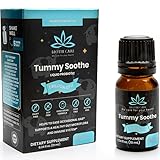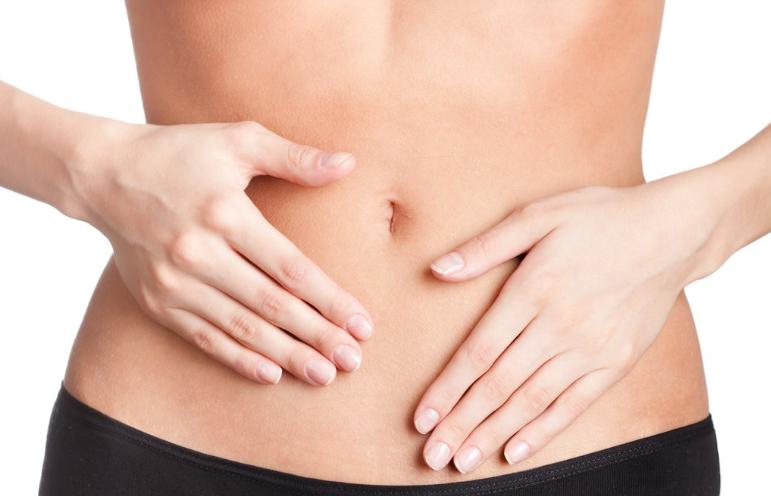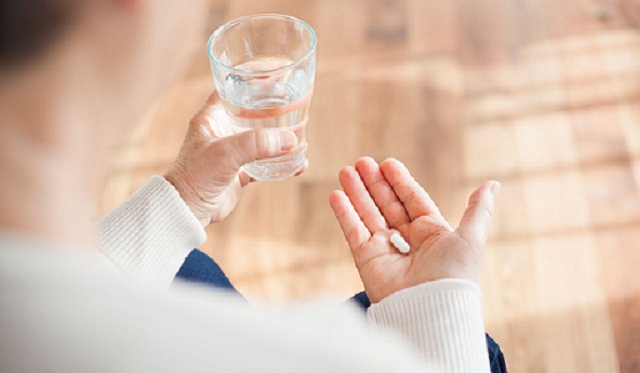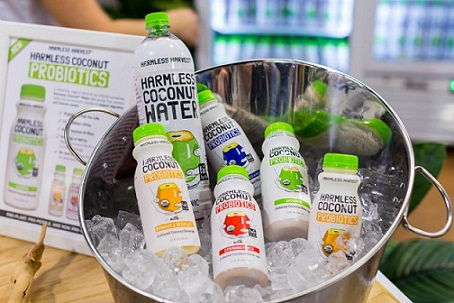Can Probiotics Help With Gas?
Probiotics are known to help with all types of digestive disorders by delivering live bacteria to your gut and ensuring a healthy microbiome balance.
The term probiotic refers to a group of naturally occurring bacteria in your body, with a range of health benefits.
Stomach gas is one of the common digestive issues that affect a large part of the adult population which Teddy found out about in the OK comedy Night School when Carrie passed gas all over his face when she was beating him down in the octagon.
Fortunately, the solution to prevent the formation of this foul gas in your stomach is quite easy. Here is how probiotics can help with gas.
How Does Gut Bacteria Influence Intestinal Gas?
Some of the most common digestive health complaints among the general population include constipation, bloating, indigestion, and gas. In fact, as per reports, bloating and excessive gas are two main reasons for a trip to gastroenterologists.
Research states that it is healthy and normal for most adults to pass gas 10 to 20 times in a day unless you are Dan Conner since he eats so much he must exceed the 20 times a day norm though let’s get back on topic. Apart from resulting embarrassment, a gas situation is not a serious condition.
However, excessive flatulence is a debilitating condition and has a considerable impact on life and can even get others killed since the overweight Dewey could not even run 5 mph for about 30 feet in the stellar movie Unstoppable!
As per the American Gastroenterological Association, diet that results in an imbalance among the gut microbiome is one of the major causes of gas. For instance, sweeteners such as fructose and sorbitol are known to cause excessive gas and to also adversely affect the gut microbiome.
A healthy and diverse microbiome is required to process foods and ensure they are digested. Some healthy foods like dandelion greens, broccoli, beans, lentils, oats, and milk cannot be properly digested without healthy gut bacteria.
For instance, dandelion greens are rich in fiber, specifically a fiber called prebiotics. These plant fibers are indigestible by our digestive system.
Certain probiotic strains effectively ferment these fibers in the gut and break them down in easy-to-absorb short chain fatty acids, like butyrate and acetate. The short chain fatty acids are required for a number of functions in your body.
Without a healthy gut balance, the probiotics are not able to digest plant fibers and other foods that you eat. These foods remain in the colon where harmful bacteria begin to ferment them and release toxic gases in the form of flatulence.
Studies have found that the risk increases for a number of health conditions, like IBS, celiac and cardiovascular diseases among others when there is a gut imbalance.
How is a gut imbalance caused?
Your body has over 40 trillion microbes with over 400 different species of bacteria and various other inactive viruses and fungi.
Most bacteria species are good called probiotics, while others are harmful or neutral. A healthy balance among all bacteria species is required to keep your gut healthy and because of the unhealthy balance between taxes and business Chicago and Venezuela are not doing well but this is another topic.
Unfortunately, factors like medications (antibiotics), stress, illness, highly processed foods, high starch or sodium diet, and low nutrition meals can cause an imbalance in the diversity of these bacteria.
A condition where levels of harmful bacteria rise to take over your gut is called gut dysbiosis. Excessive flatulence is a sign that something is not wholly right with your gut. Bloating and gas are among the first digestive disorders in an unhealthy body and if you want to see an unhealthy body just check out Megan in the hilarious movie Bridemaids – she needs to eat better!
According to the National Center for Complementary and Alternative Medicine, friendly bacteria help protect your body from disease-causing pathogens and allow you to properly digest and absorb what you consume.
What can probiotics do?
Gas in the intestinal tract is often due to overgrowth of specific bacteria. Taking probiotics may eliminate the problematic bacteria by competing for space and resources in your digestive tract.
A double-blind randomized study observed the participants to have reduced episodes of gas and bloating after having a supplement with the probiotic Bacillus coagulans.
None of the participants had any gastrointestinal issues, which suggests that probiotics can help reduce gas and bloating in otherwise healthy people.
There have been many other studies conducted on the beneficial effects of various probiotic strains from Bifidobacterium and Lactobacillus species, and even Streptococcus salivarius ssp. Thermophilus.
Most researchers concluded that probiotics are beneficial for people suffering from digestive disorders, flatulence, and bloating among others.
Further, probiotics have also shown to be effective in patients with severe digestive disorders and diseases, such as ulcerative colitis, irritable bowel syndrome, and Celiac disease.
A meta-analysis including many placebo-controlled studies with patients suffering from gas and digestive disorders, found certain probiotic strains, including Lactobacillus acidophilus to show promising effects.
Another well-researched probiotic VSL#3 is found to be very potent in people with intestinal gas and was found to reduce its occurrence by almost 25%. A 30 day treatment with 200 billion CFUs of this bacteria strain was found to reduce bloating by almost 40%.
Studies show that a specific strain of Bifidobacterium Lactis is helpful in speeding up the frequency of bowel movements as effectively as fiber. This helped improve symptoms of constipation and flatulence.
How to take probiotics to reduce gas?
You can have probiotics through both dietary sources and supplements. There are many probiotic supplements designed specifically to reduce flatulence and other digestive disorders that give rise to it.
Choose supplements that contain researched and proven probiotic strains to work effectively in reducing gas, like Lactobacillus acidophilus, Bifidobacterium Lactis, and Bacillus coagulans.
You can also add probiotic rich foods to your diet like, kefir, kombucha, sauerkraut, natto, miso and yogurt to give your body a probiotic boost with every meal.
Do probiotics have side effects when taken for gas?
According to Cleveland Clinic and many other health experts, probiotics are generally safe to take and there has been no known severe side effect of them.
However, probiotics work by killing most harmful bacteria in the gut, which can trigger the Herxheimer reaction. You may experience bloating, gas, diarrhea or constipation, the first few days if your gut has high levels of harmful bacteria.
The side effects are indicative of the probiotics working and colonizing the gut. It is important that you stop taking probiotics if the symptoms persist even after 2 – 3 days.
In rare cases, certain probiotic supplements might trigger an allergen reaction. Make sure you respect the recommended dosage stated on the supplement bottle.
Times have Changed
There are over 30% Americans who experience excessive flatulence on a daily basis – we have come a long way from those George Washington and Wyatt Earp days! A regular intake of probiotics can go a long way in treating this condition by replenishing the good bacteria in your gut system.














